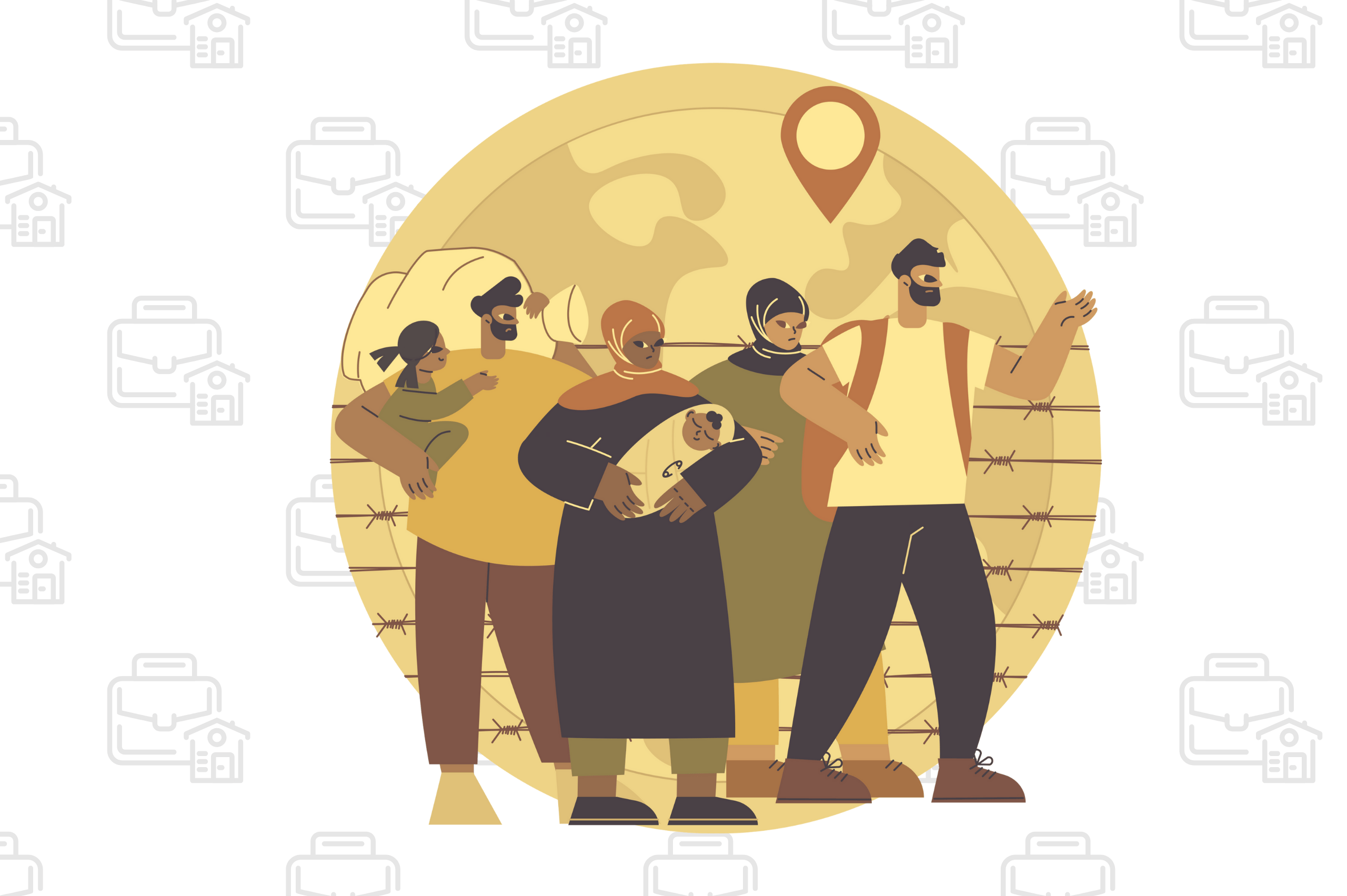
Bosnia and Herzegovina (BiH), positioned along the Western Balkans route, finds itself at the heart of the European migration crisis. Although the country is not a member of the European Union (EU), the Union’s influence on BiH’s migration policies has grown significantly over the past decade. As BiH edges closer to EU integration, legislative and policy reforms are being shaped more by European security imperatives than by humanitarian obligations. One of the most concerning developments in this context is the potential introduction of legal grounds for pushback practices—actions that flagrantly violate international human rights law.
While BiH has not yet institutionalized pushbacks, these practices are a growing concern as Croatian authorities routinely conduct pushbacks, forcibly sending migrants back across the Bosnian border. Now, under the pretext of EU integration, BiH is on the verge of legalizing such measures, effectively aligning itself with the EU’s controversial border externalization policies. This article critically examines how EU pressures are shaping Bosnia’s migration framework, exploring the practical implications of these legislative changes and their impact on human rights.
EU Influence on Bosnia’s Migration Framework: A Trojan Horse?
The EU’s influence on BiH’s migration policies is undeniable. The promise of eventual EU membership has led to substantial financial and political investments from the EU in Bosnia’s migration infrastructure. However, these investments come with strings attached, particularly the expectation that Bosnia will act as a buffer zone to prevent migrants from reaching the EU. This has led to the securitization of BiH’s migration policies, often at the expense of human rights.
The EU’s approach to migration management in BiH can be seen as a form of externalization, where non-EU countries are encouraged—or pressured—to enforce the EU’s borders beyond its physical territory. In practice, this means that Bosnia is expected to prevent migrants from entering EU territory, even if it means compromising international legal standards on asylum and refugee protection. The legislative shifts in Bosnia, particularly the drafting of the Border Control Law, illustrate this dynamic clearly. The law, which introduces provisions to legalize the rejection of migrants at the border, mirrors EU border security policies but significantly departs from Bosnia’s human rights obligations under international law.
Legalization of Pushbacks: A Prelude to Human Rights Violations
While pushbacks are currently not a legal practice in BiH, the draft Border Control Law includes provisions that would effectively institutionalize them. Article 55 of the draft law explicitly lays the groundwork for rejecting individuals at the border under the guise of preventing “illegal” crossings. This would allow border authorities to prevent migrants from entering Bosnia without offering them the opportunity to apply for asylum, which is a clear violation of the principle of non-refoulement enshrined in the 1951 Refugee Convention.
It is essential to understand that pushbacks are not merely administrative measures; they are human rights violations. The principle of non-refoulement prohibits states from returning individuals to territories where they may face persecution, torture, or inhuman treatment. By introducing legal grounds for pushbacks, Bosnia is moving toward practices that could lead to widespread human rights abuses. The pushbacks already happening from Croatia into Bosnia provide a stark warning of what could follow if Bosnia formally adopts these measures.
Croatia’s Pushbacks and Bosnia’s Role in the EU’s Migration Strategy
The practice of pushbacks from Croatia into Bosnia has been widely documented and condemned by human rights organizations. Croatian border authorities routinely expel migrants across the border into Bosnia, often using violence and intimidation. These migrants, many of whom have fled persecution and conflict, are denied the opportunity to seek asylum and are left stranded in BiH, unable to continue their journey into the EU.
Despite the obvious human rights violations inherent in these practices, the EU has been largely silent on Croatia’s role in pushing migrants back into Bosnia. Instead, the EU’s focus has been on strengthening border controls, both within its member states and in neighboring countries like BiH. Frontex, the EU’s border and coast guard agency, has been instrumental in this strategy, playing a growing role in Bosnia’s border management despite its controversial history of involvement in pushbacks.
While Bosnia has not yet begun conducting pushbacks itself, the legislative groundwork is being laid for it to follow Croatia’s lead. The EU’s tacit approval of Croatia’s actions sends a clear message: controlling migration flows into the EU takes precedence over protecting the rights of migrants and asylum seekers. The introduction of legal pushback provisions in Bosnia’s draft Border Control Law reflects this prioritization of security over humanitarian obligations.
Legislative Reforms and the Circumvention of Human Rights
The Law on Foreigners and the draft Border Control Law reveal a worrying trend in Bosnia’s legislative process: the circumvention of human rights obligations under the pretext of aligning with EU standards. While Bosnia’s policymakers present these reforms as necessary steps toward EU integration, the reality is that they are fundamentally reshaping the country’s migration framework to prioritize border security over human dignity.
Provisions in the Law on Foreigners, for instance, allow for collective restrictions on movement under vaguely defined conditions such as “public health” or “public security.” These provisions provide legal cover for detaining migrants in substandard conditions without due process or individualized assessments of their cases. Moreover, the use of summary proceedings for expulsion—another key feature of the law—undermines the basic right to a fair hearing, effectively denying migrants the opportunity to appeal deportation orders or apply for asylum.
These legislative shifts reflect the EU’s broader migration agenda, which prioritizes preventing migrants from reaching EU territory by any means necessary. In practice, this means that countries like Bosnia are expected to absorb the human and legal costs of managing migration, often without the resources or infrastructure needed to uphold basic human rights.
The Pretext of EU Integration: Compromising Human Rights for Political Gain
The push to align Bosnia’s migration laws with EU standards has been presented as a crucial step toward EU accession. However, this framing is misleading. While the EU touts itself as a champion of human rights, its migration policies in practice reveal a different agenda: one that prioritizes the security of its external borders over the protection of migrants and asylum seekers.
The pressure on Bosnia to adopt EU-style border controls has led to the introduction of laws and policies that undermine international human rights norms. The potential legalization of pushbacks is a prime example. By aligning its laws with EU regulations, Bosnia is not only compromising its own human rights obligations but also perpetuating the EU’s externalization of migration control. This externalization strategy places the burden of managing migration on non-EU countries, allowing the EU to distance itself from the human rights violations that inevitably occur as a result.
The Path Forward: Resisting the Normalization of Pushbacks
Bosnia stands at a critical juncture. The current legislative trajectory risks turning the country into a de facto extension of the EU’s external border, where human rights violations become the norm under the pretext of security. To prevent this outcome, Bosnia must resist the pressure to adopt pushback practices and instead focus on strengthening its asylum system and upholding international legal standards.
The EU must also be held accountable for its role in shaping Bosnia’s migration policies. While the EU presents itself as a partner in Bosnia’s path to membership, its influence on migration governance has led to the erosion of human rights protections. If Bosnia is to truly integrate into the European community, it must do so on the basis of shared values, including the protection of human dignity and the right to asylum.
In conclusion, while Bosnia has not yet fully implemented pushbacks, the legal and political groundwork is being laid. The EU’s influence, driven by a desire to control migration flows, has pushed Bosnia toward policies that prioritize security over human rights. To avoid becoming complicit in the EU’s border externalization strategy, Bosnia must reaffirm its commitment to international human rights law and resist the normalization of practices that undermine the dignity and rights of migrants and asylum seekers.


